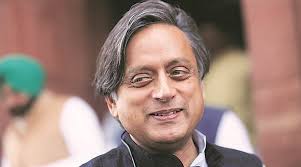New Delhi: Shashi Tharoor has said that to reimagine education, we must imagine what an excellent education will look like for vulnerable communities.
He was speaking at the InspirEd virtual conference on education. He spoke at length about the recently introduced National Education Policy 2020 and his vision for India’s children in the light of the policy.
Tharoor also discussed the challenges faced by India due to the coronavirus pandemic. He highlighted how the pandemic led to the closure of schools, affected the economy, livelihood of people among several others.
He said that while it’s challenging for a child to stay focused in digital classrooms for longer hours, educators who are excellent otherwise are also struggling to command the attention of these online classrooms.
He also mentioned that this change, however unprecedented, is inevitable and has severely affected students, especially those from low-income backgrounds.
“There are people in our country, who not only can’t afford a computer at home, don’t have a laptop or don’t even necessarily have a mobile phone,” Tharoor said.
“If they have a phone, it’s not smart enough for digital learning and if they have a smartphone, most of them don’t have access to a fast internet data pack,” quoted India Today.
“Societies around the world have had to deal with historic dividers of poverty and inequality, and as we move towards greater digital activity, there’s no question that we must recognize the strong digital divide that exists,” Shashi Tharoor said.
“The sudden push to all digital learning has left a number of our students and their families in considerable stress,” Tharoor said on the stress that online learning has had on students and teachers.
Speaking on his idea of reimaging education, Tharoor said, “When we reimagine education, we must imagine it for everyone. Our imagination must embrace the marginalised, the vulnerable families who are naturally disproportionately affected by our current push towards digital learning.”
He went on to ask how, amidst this very challenging shift, we can prepare our kids for careers that don’t even exist currently.
Sharing his optimism over the NEP, he wholeheartedly welcomed the move to include more extra-curricular subjects in school education, recreating a seamless structure between universities and industries.
However, he pointed out that there are lofty goals and targets in the NEP without a clear route map such as 50% gross enrollment for higher education and 100% secondary school enrollment.
“The reality of Indian school infrastructure shouldn’t be glossed over; how many schools don’t have toilets for girls?” he asked.
He concluded on an optimistic note of reimagining education for everyone, to create a better future and wished everyone at inspirED an opportunity to change our tomorrow.


Comments are closed.